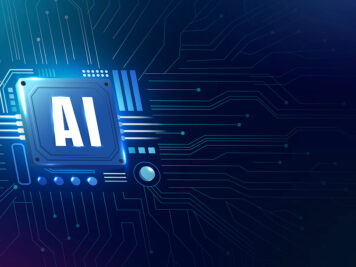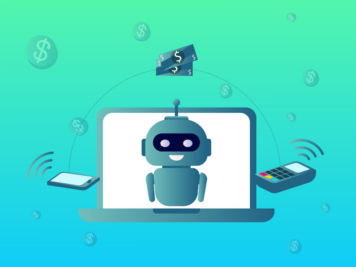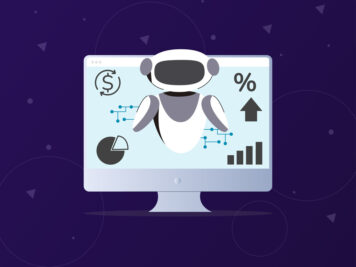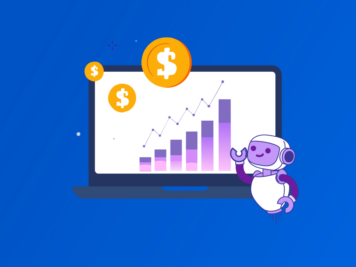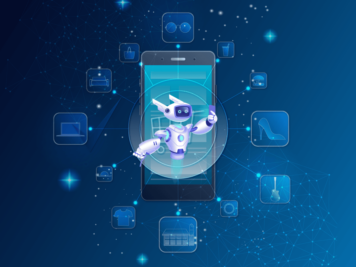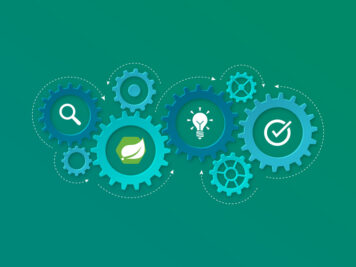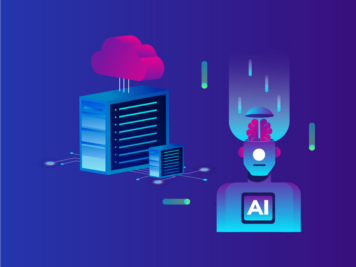The benefits of AI in healthcare are shaking up the entire industry. Within the past few years alone, there has been a notable improvement in patient outcomes, overall health management and healthcare delivery. A recent report from Pew research revealed that 38% of U.S adults claimed that the use of artificial intelligence (AI) in healthcare has improved patient outcomes.
This increase in confidence reflects the growing role that artificial intelligence (AI) plays in the healthcare sector, which covers a wide range of use cases, from drug development and personalized treatment plans to diagnosis of diseases and medical imaging.
The future of AI in healthcare holds even greater promise. Market projections estimate a boom, with industry reaching a value of $194.4 billion by 2030, driven by a CAGR of 38.1% ( Source: AMR (June 03,2024)).
Leading this way forward is Med-Gemini, a revolutionary family of AI models specifically designed for healthcare applications. Med-Gemini, which is based on Google’s powerful Gemini technology, is excellent at multimodal and long-context reasoning, opening the door to new developments in medicine.
This blog post will explore 7 specific benefits of AI in healthcare, highlighting how this technology is revolutionizing the field and paving the way for a healthier future for all.
But how exactly does AI achieve these incredible achievements? Let’s take a closer look at how AI works in healthcare?
How AI works in healthcare?
Healthcare is rapidly evolving thanks to artificial intelligence (AI), which can analyze data, predict outcomes and even aid in diagnosis. This technology has enormous potential to improve patient care and streamline healthcare processes.
Big Data and predictive health analytics
Big Data and predictive health analytics are two important ways to use AI in healthcare. Artificial intelligence can identify patterns and trends that facilitate early identification of diseases by examining huge volumes of patient data. This allows healthcare professionals to act more quickly and potentially improve patient outcomes.
For example, Children’s Hospital of Philadelphia integrates and shares imaging, clinical and genetic data using AI. This allows scientists to examine diseases in diverse patient groups, develop new hypotheses, and eventually provide breakthrough results.
Machine learning (ML)
Another key area is machine learning, a branch of artificial intelligence. It makes it possible for AI systems to become more accurate over time by learning from past experiences. This is particularly useful for medical diagnostics, since AI can detect possible abnormalities by analyzing medical images and other data. This can reduce human errors and help doctors identify patients more accurately.
Natural language processing (NLP)
Healthcare also benefits from the use of natural language processing (NLP), another branch of AI. NLP enables AI systems to understand and use human language. This can be used to create reports, analyze medical information, and even power chatbots that can schedule appointments or respond to patient inquiries.
Natural language processing (NLP) is used by the Fred Hutchinson Cancer Center to sort through massive amounts of unstructured clinical data. This allows them to save lives by doing it quickly and matching patients with relevant clinical trials.
The importance of AI goes beyond specific applications. Hospitals and research institutes are using AI to integrate and share diverse data sets, such as clinical data, genetic data and medical images. This facilitates cross-disease analyses, which opens new avenues of research and therapeutic choices.
Even though the use of AI in healthcare is growing, there are still challenges ahead. A thorough assessment of security, privacy and ethical issues related to misuse and safety is important. However, the undeniable benefits of AI in healthcare enable it to significantly influence patient care and operational efficiency.
How AI benefits healthcare operations?
AI has the potential to revolutionize how healthcare is delivered and managed by harnessing the power of advanced algorithms and machine learning. From efficient data management and diagnostic assistance to personalized treatment and predictive analytics, AI solutions can enable healthcare providers to make better-informed decisions, improve patient outcomes, and enhance operational efficiency.
AI can also help by automating administrative tasks, introducing virtual healthcare assistants, and even contributing to drug discovery and development. The pros of AI in healthcare are so pervasive that it can quickly reshape the landscape of healthcare operations and open new frontiers of possibilities for the future.
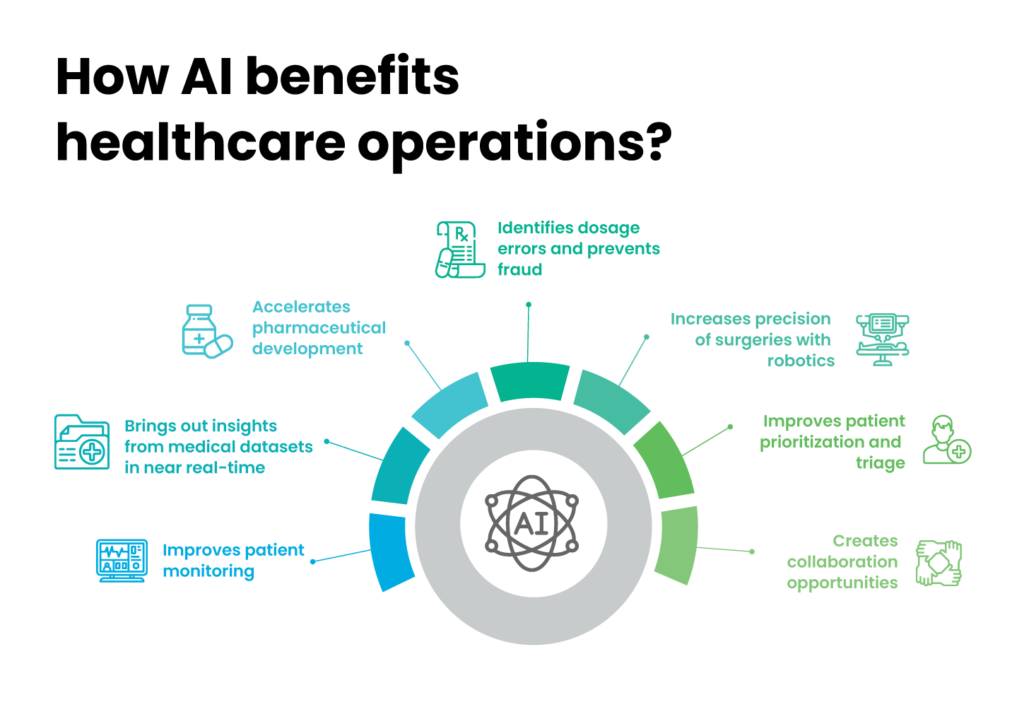
Here are 7 benefits of AI in Healthcare
1. Improves patient monitoring
AI has transformed the patient monitoring system for better. With smart wearables, it has made early symptom detection, dosage monitoring, analysis of data for anomalies, special care for geriatric populations, and other things possible.
Smart wearables have helped departments like emergency to work more efficiently. These have made the round-the-clock monitoring of critical patients easier. The sector is also benefitting from the reducing chances of manual error and loads of care providers.
In the last couple of years, there were a few instances where smart wearables raised timely alerts regarding cardiac arrhythmia and gave doctors more time to save patients. Apps to measure glucose level and calories are also becoming popular among athletes, senior citizens, health enthusiasts, and patients with critical illness.
In low-resource locations, delivering proper care is nearly impossible due to the lack of medical assistants and infrastructure. There, telemedicine solutions can transform how healthcare operates.
Telemedicine have proved its efficacy during the pandemic when there was constraints in visiting hospitals. Using this, patients can connect with doctors and physicians remotely and seek 24/7 support related to their diagnosis, diet schedules, appointment scheduling and more. It can also minimize operational expenses and offer affordable and accessible services to patients.
2. Brings out insights from medical datasets in near real-time
The healthcare industry generates unstructured data from disparate sources like patient records, billings, scheduling, pharmaceutical companies, government regulations, and others. Getting actionable insights manually from these in near real-time is challenging.
By providing easy access to previous records and predictive analytics, AI can speed up the process of diagnosis and inspire timely treatment. A few years back, AI interpreted medical images from EHRs to provide detection of cancerous cells. Since then, it has made galactic leaps in diagnosis. AI chatbots like LungDiag are showing promising signs of diagnostic abilities.
Manual scheduling processes are often time-consuming and prone to errors. But virtual assistants can help people schedule their appointments based on the need and availability of physicians. With these, healthcare providers can keep patients engaged, reduce no-shows, and optimize schedules to increase productivity and revenue.
There’s also another benefit. Healthcare providers can spare more time to patient care than in administrative tasks by automating the scheduling process. It can further improve a patient’s experience by removing the need to visit healthcare facilities all the time.
AI’s ability to read datasets and analyze to support prior authorization (PA) can also improve patient treatment and experience. It can ensure that patients receive the appropriate care for their needs in sync with the latest medical evidence and guidelines. Healthcare providers can get preapproval from patients to administer a service or a medication. This process can prevent inappropriate service utilization and ensure patients get the first-line treatments before receiving more invasive or risky therapies.
3. Accelerates pharmaceutical development
Before the COVID-19 vaccine, the fastest vaccine discovered was for Mumps in the 1960s. That discovery took four years but the groundwork was already done during World War 2. With AI and ML technology, researchers launched the first Covid-19 vaccine in less than a year.
Drug discovery is an expensive and competitive affair, and the market is huge. With AI in it, this market can now become even bigger. Pharmaceutical executives in the US healthcare system have realized that AI for medicine can generate nearly $100B annually. This is one of the reasons why top pharmaceutical companies are implementing AI in the manufacturing process. They are further leveraging its ability to reduce research and development costs.
Besides, AI can perform quality checks, minimize material waste, enhance production reuse and ensure better predictive maintenance. In the supply-chain side of the sector, ML models can prevent situations of over-demand and under-demand, along with managing supply-chain problems and failures in the production line.
4. Identifies dosage errors and prevents fraud
People often forget to take medicines or they take it more than needed. For instance, following the exact process of taking insulins. A lot of diabetic patients forget to take them. This is a concern, especially for geriatric populations who tend to forget more, as a slight error in medicine intake can be fatal. But AI-enabled wireless sensing devices can share immediate alerts when the patient administers insulin or inhaler inappropriately.
Among various benefits of AI in healthcare, its ability to detect fraud can be a game-changer. Each year, fraudulent activities, including wastage of resources, false claims, bribes, and risking patients’ lives by providing unrequired care, cause losses of billions of US dollars.
Consumers’ medical insurance is also vulnerable to data breaches and unlawful practices. It makes identifying claims before reimbursement crucial. But healthcare records are difficult to cross-check and investigators can’t monitor transactions manually in real-time. AI can help by identifying unusual patterns of insurance claims, such as billing for unperformed costly procedures and undergoing unnecessary tests to claim for insurance payments.
5. Increases precision of surgeries with robotics
In 2017, the Maastricht University Medical Centre in the Netherlands used AI robots to join small blood vessels, not more than .03 millimeters. A surgeon controlled the robot whose hand movements were converted into more precise activities.
Robotic surgeries can transform the way surgeons function. One, it can kill the distance- with a better network, doctors can control robotic arms to perform serious surgeries with more precision, that too, from a remote location. It will help the medical industry reach out to people staying in distant locations. Two, it can increase precision and assist surgeons in surgeries requiring strength, like in the orthopedic department.
Robots can operate in tiny spaces. They can reduce the need for open surgery. They can be more accurate around sensitive tissues and organs, reduce the risk of blood loss and infection, and post-surgery complications. Patients have also reported less scarring and faster recovery time compared to traditional surgeries.
6. Improves patient prioritization and triage
Assortment of patients and their triage is a tedious process. Medical emergencies often experience long waiting times and managing paperwork during emergencies can be stressful. In the US, patients often get a waiting period of months before they can visit the emergency. One of the major reasons
for such a long waiting period is the patient’s inability to understand when they should visit the emergency.
Doctors and nurses often struggle with prioritizing cases and managing patients. In such scenarios, AI can help with patient intake and triage using voice assistants and chatbots. AI apps can help patients with a basic diagnosis and inform the healthcare providers for better prioritization of cases. Predictive analytics can also boost the process and reduce the waiting period in emergency.
7. Creates collaboration opportunities
AI creates scopes for collaboration among medical professionals, patients and researchers. It is doable with AI-driven platforms that collect and analyze accurate health data from authentic sources and provide insights that can encourage medical advancements.
These collaborative platforms allow medical professionals to share knowledge, exchange best practices and learn from their experiences. On top of that, patients can submit their health data to the research studies, allowing the researchers to test hypotheses and design clinical trials for developing new treatments and therapies.
Just like there is an idea of Yin and Yang in everything, AI also comes with its own challenges. To maximize the benefits of AI in healthcare, you need to learn about its limitations and make strategic implementation.
You May Interested In: Top 10 industries with practical AI use cases
Key challenges of AI in healthcare
Here are the top cons of AI in healthcare:
1. Lack of accurate medical data
Clinicians need detailed datasets for the technical and clinical validation of AI models. However, due to disintegrated medical data across software platforms, gathering authentic patient information and testing AI algorithms can be difficult.
Consolidating these data in countries where they follow siloed data systems can be more challenging. Healthcare organizations must update and maintain digital records in time to avoid these issues and be more efficient and accurate.
Then there are problems related to labeling of data and its transparency. This is affecting the performance of electronic health records or EHRs. The data these systems are getting from diverse sources are often not labeled properly.
2. Issues in privacy and data bias
Privacy is a serious matter when it comes to patient data collection. With hackers trying to access patients’ confidential data, this has become a burning issue for many organizations. Then there are
other types of attacks as well involving data input poisoning and model extraction. The former involves inserting bad data into a training set, impacting model’s output and the latter extracts information about the AI algorithms to develop a substitute model.
To mitigate these threats, healthcare providers should conduct risk analyses and implement security measures such as multi-factor authentication and encryption.
There is data bias as well. For instance, while incorporating data from academic medical centers into the system, the process may not give enough importance to populations from other areas except academic medical centers. To avoid sampling bias and unequal representation of groups in the training data, AI experts need to identify the source and characteristics of the dataset. Even minor variations in the training data or in AI model configuration can lead to severe outcomes.
In a recent event, STAT News investigation has accused EPIC, an EHR vendor of financially incentivizing hospitals and health systems. This is concerning as false predictions can further create problems for AI’s credibility.
3. Flaws in methodological research
There are few established methodologies, prospective research and reviewed studies of AI in healthcare. Most of the studies are based on retrospective analysis and historical patient medical data. However, to understand the potential of AI diagnosis in real-world settings, medical professionals must assess current patients all the time. For reliable prospective research, doctors should observe their patients’ health with physical tests, remote monitoring and telehealth visits.
4. Lack of AI expertise
Since Covid-19, there’s been a huge surge in AI projects across sectors. This has generated a need for a good number of AI experts. But finding these experts has sprung up as a Herculean challenge for businesses. It is even worse for companies that are looking for mavericks with niche skillsets.
The healthcare sector is no different. Hospitals, pharmaceutical companies, and software industries that are building CRMs for these organizations are all facing the heat. In addition, there are limited number of experts who understand both healthcare and AI. To address the shortage, healthcare organizations need to invest in training and education programs that will allow their employees to acquire essential skills.
Read also: All you need to know about the Implementation of AI
AI’s success in the healthcare industry depends a lot on a quick early assessment of the impact areas and experts with knowledge of the domain. Product development teams with the right blend of AI experts, data scientists, developers, and UX designers can simplify the process.
We, at Talentica Software, can help you develop AI-powered products. Our experts have developed more than 30 AI/ML products from diverse sectors and helped businesses solve unique problems.
The Future of AI in Healthcare
AI has the capacity to completely transform the healthcare sector and has a bright future ahead of it. Over the past year, excitement about the potential influence of AI has only grown, driven by the rapid developments that seem to occur every week.
This technology has the potential to revolutionize healthcare in ways never seen before. However, responsible implementation is crucial, with ethical concerns and a patient-centered approach remaining the priority.
The year 2023 was marked by a rise in power of generative AI (gen AI) in the healthcare sector. This year, we can expect a shift from testing to real-world applications, including areas such as reducing administrative burden, retrieving clinician information, and increasing call center efficiency. This remains consistent with broader digital trends in healthcare, such as:
Telemedicine and Internet of Medical Things (IoMT): Enabling remote patient monitoring.
- AI-powered surgical robots: Imagine a future of increased precision and minimally invasive procedures.
- Computer vision in patient care: Applications range from automated diagnosis to improved surgical guidance.
- AI as a personal health assistant: Providing patients with personalized health information and support.
- Disease prevention using AI: AI can help identify risk factors and personalize preventative measures.
- Neural networks for research and diagnostics: AI can analyze large data sets to accelerate medical breakthroughs.
Gen AI can significantly reduce the administrative burden on healthcare professionals facing staffing shortages by automating document preparation and enabling information retrieval. This will allow more time to be spent on clinical decision-making and patient care. AI can also help laboratory staff, pathologists and radiologists manage huge amounts of data, increasing productivity and perhaps reducing errors.
There is no denying that AI in healthcare has a bright future. Anticipate notable changes in healthcare delivery, with a focus on optimizing administrative procedures, revolutionizing long-term care models, and propelling significant advances in the medical field.
Conclusion
Healthcare is on the verge of transformation thanks to AI, which promises a bright future. The benefits of AI in healthcare are clear, from accelerating drug development and reducing administrative tasks to improving patient monitoring and early disease identification. We can expect even more significant advances in patient care, operational efficiency, and medical research as AI develops and becomes more integrated into healthcare procedures.
Are you ready to discover how AI could benefit your healthcare organization? Contact us now!
Frequently Asked Questions (FAQs)
Can you give some AI in healthcare examples?
AI in healthcare goes beyond data processing, providing benefits such as improved diagnostic accuracy, personalized patient care, and efficient automation of administrative tasks.
Examples include:
Companies like Etcembly are making history by employing generative AI to develop the first AI-designed immunotherapy drug. This real-world success story highlights the enormous potential of AI to change the field of medicine by delivering novel and potentially life-saving medicines to patients faster than before.
Google DeepMind has released a new version of AlphaFold, a revolutionary AI tool for predicting protein shapes. This achievement enables AlphaFold to make substantial discoveries in biology and clinical research.
What are the disadvantages of AI in healthcare?
While AI holds great promise, it also has challenges. These include ethical dilemmas such as unclear responsibility, diagnostic accuracy as AI systems are not infallible, data privacy and security concerns, high implementation costs and travel employment potential.

